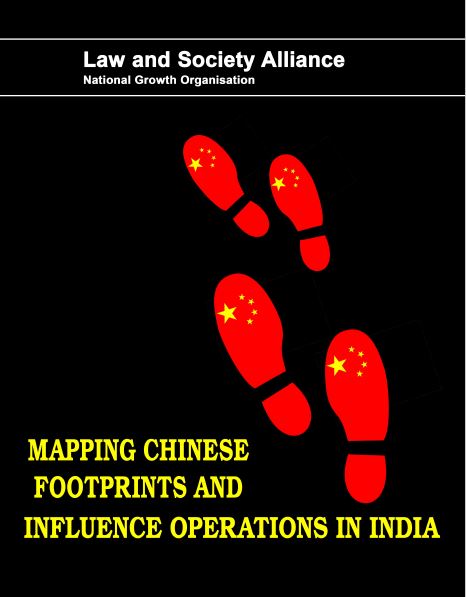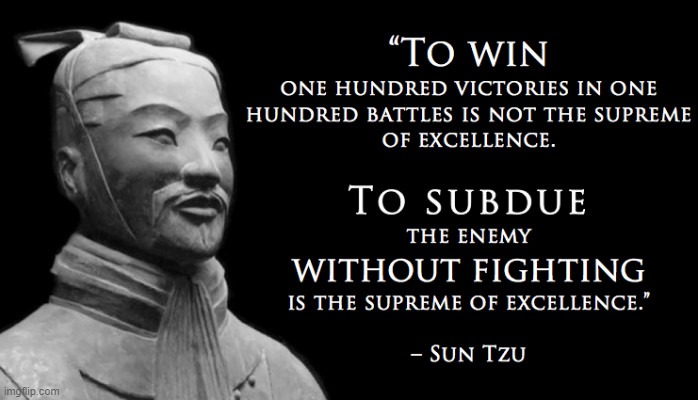The democratic world is bracing for the possibility of Communist China emerging as a global superpower dislodging the United States to take the top slot or at least rise as one of the two poles in geopolitics.
Advertisement
As this reality hits them hard, the democracies now realize how deep the inroads made by China’s spy agencies in their administration and civil society are and how heavily their policies are influenced by pro-China pressure groups among the bureaucracy, think tanks, academia, and the media.
At least since 2018, key strategic analysts, geopolitical watchers, and national security leaders have been coming out with literature that records the infiltrations made by Communist China’s spy agencies through their diplomatic missions in their respective countries.
According to books, research reports, and recent analyses, Communist China has been targeting nations, particularly key global powers that are democracies, such as the United States, the United Kingdom, India, Australia, Germany, France, Italy, and others.
The Chinese Communist Party (CCP) has tried to encircle nations that it sees as its rivals, such as the US and India, by carrying out major influence operations in their neighborhood: Canada in North America and Nepal, Myanmar, Bangladesh, Sri Lanka, and Maldives in South Asia.
Advertisement
Russia, compelled by the Ukraine war, is already in the arms of the CCP-ruled Chinese state, seeing a common ground in countering the diplomatic offensive from the US and its NATO allies.
Pakistan, India’s traditional arch-enemy, is entirely in the tight grip of its all-weather friend China, with Chinese citizens and military personnel now living in Pakistan in large numbers on the pretext of building and managing the China-Pakistan Economic Corridor.
Pakistan and China have a common interest in containing a rising India, which is preparing militarily to one day tackle and fight a war that is two-fronted from the West and the North by its adversarial neighbors.
It is another matter that EurAsian Times’ analyst Group Captain TP Srivastava (Retired) has argued in this piece that China may not come to the aid of Pakistan and would lack the willpower and the firepower to wage a two-front war with India.
Advertisement
China’s Greatest Covert Operations Fooled The US
In his book ‘Spies and Lies: How China’s Greatest Cover Operations Fooled The World’ published last year, Australian Strategic Policy Institute’s Alex Joske argued that years ago, western governments chose to cooperate with China in the hope that it would liberalize, setting aside concerns about human rights abuses, totalitarian ambitions, and espionage.
But the axiom of China’s ‘peaceful rise’ has been fundamentally challenged by the Chinese Communist Party’s authoritarian behavior under Xi Jinping.
The 268-page book pierced the CCP’s intelligence department Ministry of State Security’s (MSS’s) walls of secrecy. It revealed how party agents had spent decades manipulating the West’s attitudes — from an Australian Prime Minister to the US Congress, prominent think tanks, and the Federal Bureau of Investigation (FBI) — about China’s rise.
The book unmasked dozens of active Chinese intelligence officers and global MSS fronts, including travel agencies, writers’ associations, publishing houses, alumni associations, newspapers, a Buddhist temple, a record company, and charities.
The book provided an extraordinary insight into the most successful influence operation in history that has fooled the West for years.
In his review of the book for Lawfare, an online blog, Julian Ku, the Maurice A. Deane Distinguished Professor of Constitutional Law at Hofstra University School of Law in New York, said, “Rather than untangle how the MSS seeks to gather US government or corporate secrets, Joske argues that the MSS’ greatest intelligence strength is its massively successful influence operation against US political and business elites.
“In Joske’s telling, any US military secrets gleaned by the MSS in recent decades pale in comparison to its amazingly successful efforts to deceive the highest levels of the US policymaking world about China’s foreign policy goals and priorities. These deceptions, in Joske’s telling, kept the US government from responding earlier to China’s threat to US interests,” Julian wrote.
The retelling of episodes of MSS influence operations involving foreign politicians, academics, and businessmen, is that the plan is not just to surveil. The MSS playbook involves creating supposedly independent Chinese civil society groups, scholars, or government officials that foreign elites think they can use to learn about China and influence its policies.
Another typical MSS way of gaining influence was to fund political parties for their election campaigns, think tanks, and academia for China-related research work in which the Chinese spy agency set narratives.
Advertisement
Silent Invasion: China’s Influence In Australia
Australian author Clive Hamilton, a professor of Public Ethics at Charles Sturt University in Canberra, in his 2018 book ‘Silent Invasion: China’s Influence in Australia,’ explained the CCP’s influence and interference operations in Australia, the structure of its overseas influence network, and the techniques it uses.
Hamilton argued that Australia’s elites are the target of sophisticated influence operations, and parts of the large Chinese-Australian diaspora have been mobilized to buy access to politicians, limit academic freedom, intimidate critics, collect information for Chinese intelligence agencies, and protest in the streets against Australian government policy.
The book almost went unpublished after three publishers pulled out, citing fears of reprisals from Beijing, Hamilton said on his website. His warning that the Chinese Communist Party is engaged in a systematic campaign to exert political influence in Australia seemed vindicated even before the book was available in the market.
The book quickly became a best-seller and became a forerunner for similar studies and publications in countries worldwide that face a similar threat from a rising China under an increasingly authoritarian state. The book received both praise and criticism from public intellectuals.
Stanford University, Professor of Political Science Larry Diamond, wrote in his social media post on March 19, 2018: “I strongly urge anyone concerned about the future of freedom in the world — not just in Australia — to read ‘Silent Invasion: China’s Influence in Australia.’ Europe, Canada, Japan, and the US must learn from this experience.”
Australian National University Honorary Professor of Public Policy Andrew Podger, convenor of the Greater China Dialogue on Public Administration, wrote in his review of the book for The Conversation that “Hamilton paints a picture of unrelenting determination not only to control those within China but also to dominate the world using whatever means at its disposal. To Hamilton, China is ‘Australia’s enemy.’”

Mapping Chinese Footprints In India
In a first-of-its-kind study, the New Delhi-based think tank Law and Society Alliance released a research report, ‘Mapping Chinese Footprints and Influence Operations in India’ in 2021, that tracked key sectors under the massive influence of Communist China.
The 76-page report gave glimpses of how the Chinese Communist Party and its state-run organs for covert and overt operations were assiduously cultivating a set of entertainment industry personalities, intellectuals, policy-makers, media influencers, academicians, civil society representatives, military officers, bureaucrats, and diplomats to do China’s bidding in their respective sectors.
Essentially, the report stated China and its embassy in Delhi were buying its influence in all aspects of Indian society and economy so that its will could be imposed on the nation at the time of its choosing.
The sectors that the Chinese intelligence agencies and CCP’s key arms, such as the United Front Works Department and MSS, have been focusing on in India significantly impact the country’s citizens and capture their mindscape.
Advertisement

In the entertainment industry, China’s strategy to control the narratives in its favor is to fund production through tie-ups with Indian movie-makers and film stars. China has also hired a lobbyist in India to focus on the Indian film industry’s influence operations.
The Chinese embassy in New Delhi has also been establishing civil society organizations and funding think tanks so that they could exert pressure on the Indian government on its approach towards and its national policies on China.
China has also been establishing Confucius Institutes, in the guise of China Study Centers, in Indian academic institutions, both state-run and privately funded, where the research topic is dictated by the Chinese nationals, who are heading them, or pro-China academics who supervise the research work of the scholars.
The Chinese embassy buys advertorial space in the media by spending a few million Indian Rupees, passing them off as scholarly articles. Some Indian media houses comply with such blatant misuse of money power and, as a quid pro quo, run articles by staff writers that read like plugs for China, including criticism of the Indian government’s stand on not joining the Belt and Road Initiative (BRI) or the Regional Comprehensive Economic Partnership (RCEP) that China dominates.
The report highlighted that some diplomats, journalists, and social media influencers openly peddled the Chinese position on the situation along the Line of Actual Control between India and China in the eastern Ladakh region, where a military conflict erupted in April 2020.
China has also been investing heavily in the Indian tech sector, particularly EdTech, and Fintech, and creating industry lobbies, especially for its tainted tech companies to operate in India.
Threat To Integrity Of Democracies
Chinese influence operations, also known as “sharp power,” use covert and overt means to shape foreign perceptions, policies, and institutions in favor of China’s interests. These operations include media manipulation, economic coercion, political subversion, espionage, and cyberattacks.
The impact of Chinese influence operations can be significant and far-reaching. Chinese influence operations seek to undermine the legitimacy of democratic institutions and values, such as free speech and the rule of law, by spreading disinformation, supporting authoritarian regimes, and targeting dissenters.
China uses its economic leverage to coerce other countries into making policy decisions that benefit China, such as aligning with Chinese positions on sensitive issues or allowing China greater access to key sectors of the economy.
China has been accused by other nations globally of using cyberattacks to steal sensitive information from other countries, including intellectual property, military secrets, and personal data. China uses its influence over media outlets to shape narratives and promote its own interests, including downplaying or ignoring human rights abuses and censorship within China.

China’s assertive foreign policy and influence operations can exacerbate tensions with other countries and undermine efforts to resolve conflicts peacefully. Chinese influence operations pressure foreign governments and companies to limit free speech and conform to China’s ideological priorities, such as censoring content critical of China or its leaders.
Overall, Chinese influence operations significantly threaten global stability and the values of democracy, human rights, and free speech. Countries must remain vigilant and take steps to counter these operations by increasing transparency, strengthening democratic institutions, and promoting media literacy.
An India-based strategic affairs analyst said Communist China’s influence operations in an enemy nation essentially flow from the idea of pre-Christ era war strategist Sun Tzu on winning without fighting. The Chinese influence operations in democracies globally target nations that Beijing sees as its potential rival and a hurdle to its rise, he said, requesting not to be named.
“One of the three concepts that China adopts as part of its influence operations is called ‘active measures,’ which essentially employs useful idiots from the enemy nation as fifth columns to weaken it from within.”